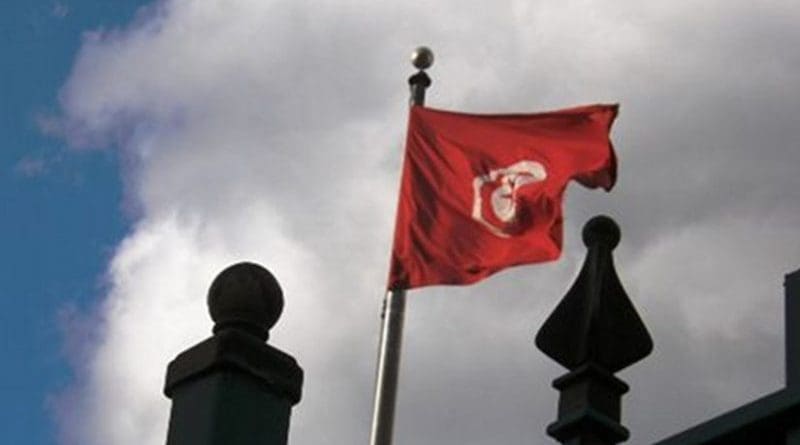Tunisia’s IMF Deal Risks Further Poverty And Social Tensions – OpEd
By Aymen Bessaleh
On October 15, 2022, the International Monetary Fund (IMF) announced a staff-level agreement on a fund with Tunisia for a total of $1.9 billion. The Tunisian government hopes with this to unlock possibilities for other loans, to help it tackle the economic crisis that has been affecting the country.
The agreement’s conditions are a set of measures for which the government will seek to decrease public spending to address the budget deficit, reform taxation, raise more revenue, and amend the governance of public service and state-owned enterprises. More importantly, and disregarding the fact that the new agreement is pending approval of the IMF’s Executive Board, citizens still ignore the details of this deal, and how these measures will impact their livelihoods. It is imperative that all parties privy to these negotiations adopt a more transparent approach and communicate the discussions to Tunisians. At the same time, the contours of the announced measures threaten to further increase social vulnerabilities of the less fortunate classes in an already difficult socio-economic setting, something the population can hardly afford.
A quick look at Tunisia’s letter of intent and the IMF’s announcement of their previous agreement in 2016 shows that the reforms agreed upon at the time are fundamentally the same as the announced measures in October, with the same adopted discourse on financial costs. The major caveat of this rationale is the fixation on financial costs in addressing economic issues, dismissing the social costs. To make matters worse, weeks following the announcement, nothing has been publicly known on the expected measures except that they correspond to an overview of Tunisia’s latest national reform program revealed last June by the Tunisian government.
On October 26, government representatives met with a number of journalists to discuss the framework of these reforms without revealing a single detail. On November 3, an interview with Finance Minister Sihem Nemsia on the IMF deal was aired during which she stated that the final document was still being fine-tuned, and that the government would have to implement some prior actions within the 2022 complementary budget bill and the 2023 budget. Here again, almost no concrete details on the actual steps were revealed, aside from generalities and hypotheticals and some hints on what to expect.
What has been confirmed, however, is that the government will continue its public hiring freeze, will encourage early retirements in the public sector, and will implement a mechanism to replace direct subsidies for food products with cash transfers. These measures seem to be at the core of the government’s plans and given the cabinet’s reluctance in discussing them, citizens grow worried regarding their purchasing power. This comes at a time when Tunisians have been dealing with supply shortages in food products for months: They continue to deal with the empty shelves of flour, dairy products, and other goods, and increasing waves of fuel shortages, the most recent of which hit the capital the same week of the staff-level agreement. Fuel prices have also been raised five times in 2022 and fears linger over another one before the year’s end as the government seeks to decrease its power subsidies spending as well.
The Tunisian government is adamant on highlighting that it aims to implement a targeted subsidization rather than complete cuts, in order to alleviate financial costs to the budget. Such an argument ignores that subsidies are tied to Tunisia’s low wages that successive governments have hailed as a competitive advantage to attract foreign investments. Moreover, it appears that the cash transfer plan will allow households to self-identify as being in need of them but no clarification was given on whether there would be a vetting and approval process or not, or on the criteria that will be implemented. More importantly, studies suggest that direct subsidies are more distributive and contribute more to eradicating poverty than cash transfers.
The Tunisian General Labor Union (UGTT), the country’s biggest labor union, is opposed to the expected policy changes and has repeatedly called on the government to share the program they presented to the IMF with the public. On what reform would the UGTT first clash with the government, and most importantly when, remains a question, especially as both subsidy cuts and public companies are a top priority for the syndicate. On December 3, 2022, UGTT’s Secretary General Noureddine Taboubi revealed in a large gathering that the labor union will oppose any policy that threatens Tunisians’ livelihoods, sounding the drums of war with the government, as rumors circulate that the promulgation of the 2023 finance bill is imminent.
The set of measures that the Tunisian government plans to implement with the IMF’s blessings threatens to increase the country’s poverty rates. While it may improve the state’s capacity to import food products, it will contribute to decreasing citizens’ access to them which does not solve the problem of food security. This is happening in an already tense political situation during which the authorities’ attention is pointed toward the December 17 parliamentary elections with an absence of dialogue. Despite the continuous allusions to social safety nets in official discourse, the current government’s aim is to decrease the state’s role in social welfare. This will likely catalyze social tensions given the increasingly authoritarian practices since Kais Saied’s power grab in July 2021.
The views expressed in this article belong to the authors alone and do not necessarily reflect those of Geopoliticalmonitor.com

